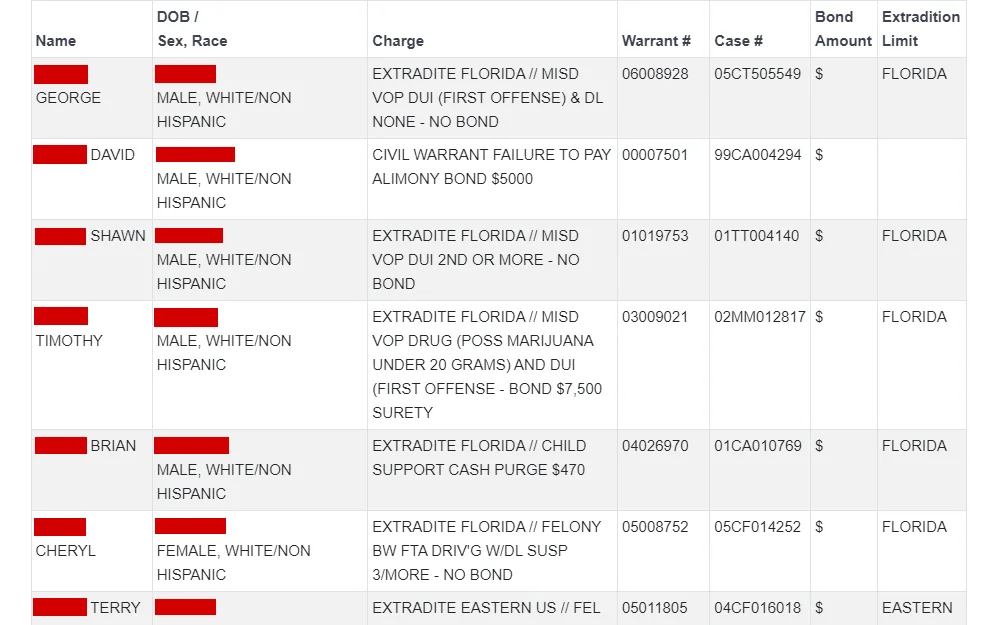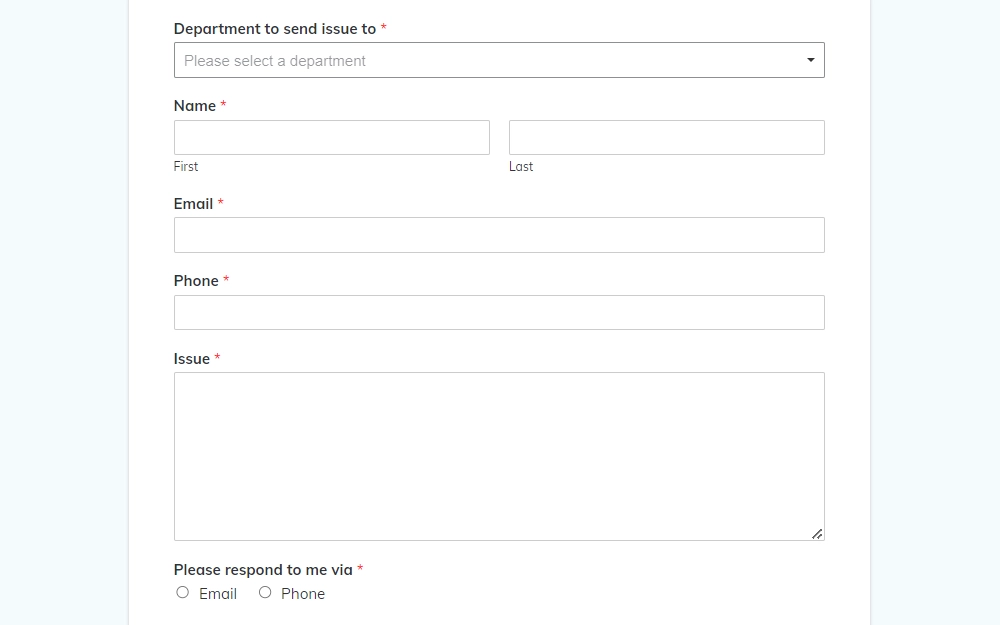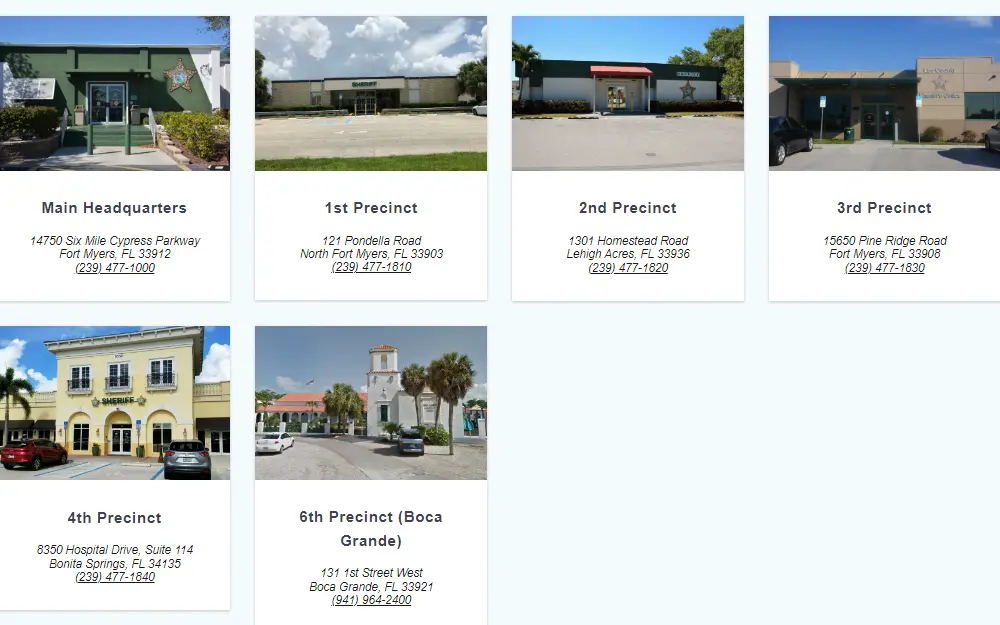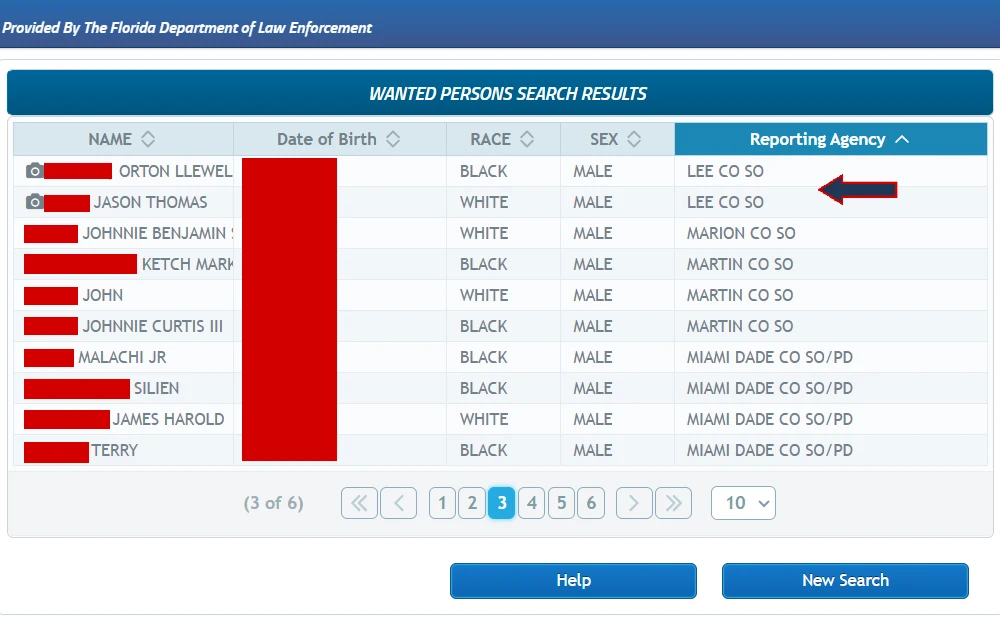Delve into Lee County warrants on anybody without stress or tedious research.
You may be looking for important information about warrants issued and active in the county to see if you or someone you know has one; these records’ custodians have made them publicly available, making access relatively efficient if you know where to look.
This resource offers clear steps for performing seamless warrant searches in Lee County, Florida.
A Synopsis of Running a Lee County Warrant Search (Free)
Researchers can find all sorts of documents and information available under Florida Chapter 119: Public Records, otherwise known as the Florida Sunshine Law.1
This includes records of historical and active warrants ordered by Lee County agencies. Generally, the term warrant applies to any document which gives law enforcement the power to search, arrest, seize, or detain any person or property.
There are various types of warrants issued in Florida, which will be explored in this resource. Most warrants are available for public searches, but records seekers should understand that any warrant containing information that compromises an ongoing criminal investigation may be sealed.
There are several custodians of warrants in Florida, including local sheriffs and the Florida Department of Law Enforcement (FDLE).2 Therefore, the Lee County Sheriff’s Office and the FDLE are the proper investigative channels for these purposes.3
It’s vital to know someone’s first and last name, and having other insight such as where the person lives or where the warrant was issued will be extremely helpful in tracking down further warrant details.
How To Search Active Warrants in Lee County Florida
The official warrant database is maintained by the Lee County Sheriff’s Office.3 Searchers can most efficiently access active orders by using the online Warrant Search Tool.4 Users just access the search box and type in the name of the person they are inquiring about.
The search tool will display the name, date of birth, sex, and race of anyone with a Lee County warrant. Additionally, the result will describe the charge, the warrant number, the case number, the bond amount, and the extradition limit.

If you have questions about searching for warrants, you can fill out a contact form online and have an employee call you back later.5 Otherwise, you can also call the Lee County Warrants Unit at 239-477-1269.

You can also visit the office in person or call for more information. Below is the sheriff’s office address and contact information:
Lee County Sheriff’s Office
14750 Six Mile Cypress Parkway
Fort Myers, FL 33912
Phone: 239.477.1000
Several smaller satellite offices are located across the county in North Fort Myers, Lehigh Acres, Fort Myers, Boca Grande, and Bonita Springs. The location and phone numbers are listed in the Facility Directory.6

A phone call or personal visit can be helpful if you have questions about an individual case that impacts you. However, the office will likely refer you to the web search tool or contact form if you have more general needs.
The local police departments also have access to active warrants through the county records. Affected parties can go to their local law enforcement station to inquire about a warrant.
Again, this option is helpful if the warrant is against you or if you are affected as a witness or victim. Otherwise, the police will likely refer you to the county search tools.
Anyone searching because they are the subject of a warrant should be cautious when going to law enforcement in person. You will likely be subject to arrest or detainment on the spot.
How To Find Statewide Warrant Details in Florida
Anybody interested can access statewide warrant information on anyone in Florida.
The Florida Department of Law Enforcement (FDLE) keeps a statewide database of active warrants.7 This is more comprehensive than the county lists since they also contain warrants issued by a statewide agency.
However, it is important to know that this database is only a compilation of what all the organizations send to the state as data. Therefore, the state database is only as accurate as all the counties keep the central office informed.
To search active warrants in all of Florida:
- Go to the FDLE Wanted Persons Search Tool.7
- Enter any demographic information you know that can help narrow the search. The search can be narrowed by name, nickname, sex, and age.
- The results will show the name, date of birth, sex, race, and the agency that reported the active warrant.
You can use further FDLE contact information to call or email the organization.

The FDLE has a main office in Tallahassee, where numerous law enforcement offices, divisions and services are located.8 You can visit or call the FDLE Headquarters at:
Florida Department of Law Enforcement
2331 Phillips Rd.
Tallahassee, Florida 32308
Main Office: 850.410.7000
Public Records Office: 850.410.7676
Smaller satellite offices are located in Pensacola, Jacksonville, Orlando, Tampa Bay, Fort Myers and Miami.
Note that the state rarely does anything about the warrants listed in the database. Mostly, it is just a central information hub that compiles county records. So, anyone who wants to take steps to resolve a warrant will likely go back to the county where the order originated.
Warrant Types & Their Meanings
Just about any court order that allows police to search, seize, or detain a person or thing is called a warrant. Many types can be found in the databases; check out various kinds of warrants below with brief explanations of each.
Warrants for Arrest: When the police suspect someone of a crime, they can go to a judge and present information that shows the person was likely the perpetrator. If “probable cause” is established, an arrest warrant is issued. Arrest warrants give the police the right to seize and detain the accused and bring them in for an arraignment in court.
A particular type of arrest warrant is a fugitive order. If someone flees Lee County to avoid arrest or a trial, they can be arrested throughout Florida or the rest of the country.
Warrants for Failure To Appear: Judges can also issue warrants for anyone who fails to appear at a required hearing. Typically, a judge issues a bench warrant. They are not arrests for a crime but are similar because the person can be detained and brought to jail or before the court.
These are issued when a defendant does not attend a court proceeding or if someone avoids an appointment to be picked up by the sheriff to turn themselves in. If the case is a felony, the warrant may specify a no-bail detention to ensure the person attends the rest of the trial.
Warrants for Violations of Supervised Release Conditions: Sometimes, a convicted person is sentenced to jail time. However, there are also forms of supervised release, probation, and parole. These releases come with conditions such as meeting with probation officers, staying drug-free, and avoiding further criminal activity.
A warrant is issued if someone violates the conditions, and their sentence may be converted to a prison sentence. Since the person has already been convicted, they have less right to defend themselves against this charge.
Other Warrants: Other warrants order law enforcement officers to search, seize, or detain people or property. Search warrants allow the police to search for evidence of a crime in someone’s home, vehicle, or other property. Another frequently seen warrant is for past due child support payments.
Anyone who has defaulted on paying child support can be detained and brought before the family court judge. Similarly, someone who does not pay traffic tickets and ignores notices can be seized and brought to traffic court.
How Do I Resolve a Warrant in Lee County Florida?
Readers can use this resource to find active warrants against themselves, friends and family, or someone they are afraid of. In all these cases, knowing the steps to resolve the warrant is just as important. You can help get the problem resolved without an arrest in some cases, or you can help the police apprehend a dangerous wanted person.
If you are trying to resolve a Lee County warrant yourself or help a loved one, the first step is to find all the information available through an online search. This will explain the cause of the warrant and exactly what agency to contact to resolve the warrant.
Next, contact a lawyer and a bail bond office to discuss the situation before contacting the authorities. Be aware that contacting the authorities or showing up at a law enforcement office will likely result in an arrest.
In some cases, the next step may be to resolve the warrant. For example, if the underlying charge is not severe, you may be able to pay a fine or schedule a court appearance simply.
In other cases, you can turn yourself in and pay a bond to be released relatively quickly after being detained. The lawyer and bail bondsperson can help you through any of these situations.
In other cases, you may be able to report a wanted person to the police so that they can be arrested as soon as possible. Lee County uses the Southwest Florida Crime Stoppers, which can be called at 1-800-780-TIPS (8477). However, if you are ever in immediate danger, always call 911.
Remember that the main record custodian for these warrants is the Lee County Sheriff’s Office. You can go to the office in person, call, or fill out an online contact form.5 The Sheriff can be contact at:
Lee County Sheriff
4750 Six Mile Cypress Parkway,
Fort Myers, FL 33912
Phone: 239-477-1000
Regardless of the reason for a warrant, it is essential to take steps to resolve it one way or another. Use this resource to make the first step, finding the order record using the Free Lee County warrant search; no matter the situation, obtaining warrant details and taking steps to resolve it are imperative.
References
1The Florida Legislature. (n.d.). Title X Public Officers, Employees, And Records, Chapter 119 Public Records. Online Sunshine. Retrieved January 25, 2024, from <http://www.leg.state.fl.us/Statutes/index.cfm?App_mode=Display_Statute&URL=0100-0199/0119/0119ContentsIndex.html&StatuteYear=2012&Title=-%3E2012-%3EChapter%20119>
2Florida Department of Law Enforcement. (n.d.). About FDLE. Retrieved January 25, 2024, from <https://www.fdle.state.fl.us/About-Us>
3Lee County Sheriff’s Office. (n.d.). About Us. Retrieved January 25, 2024, from <https://www.sheriffleefl.org/about-us/>
4Lee County Sheriff’s Office. (n.d.). Warrant Search. Retrieved January 25, 2024, from <https://www.sheriffleefl.org/warrant-search/>
5Lee County Sheriff’s Office. (n.d.). Contact Us. Retrieved January 25, 2024, from <https://www.sheriffleefl.org/contact-us-2/>
6Lee County Sheriff’s Office. (n.d.). Facility Directory. Retrieved January 25, 2024, from <https://www.sheriffleefl.org/facility-directory/>
7Florida Department of Law Enforcement. (n.d.). Wanted Persons Search. Public Access System (PAS). Retrieved January 25, 2024, from <http://pas.fdle.state.fl.us/pas/restricted/PAS/person/WantedPersons.jsf>
8Florida Department of Law Enforcement. (n.d.). FDLE Headquarters. Retrieved January 25, 2024, from <https://www.fdle.state.fl.us/Regions-Divisions/Headquarters>
